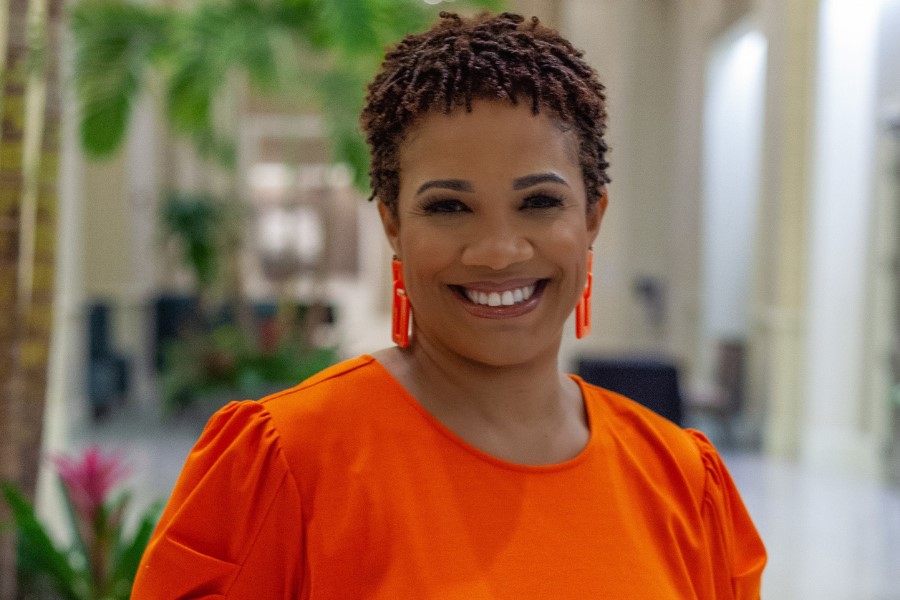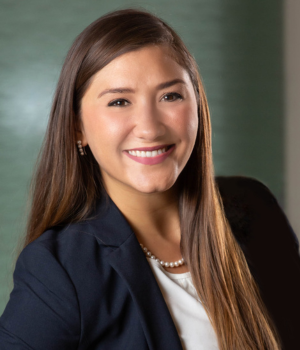

Long before diversity, equity, and inclusion became a popular term, Lazetta Rainey Braxton faced a difficult moment involving how welcome people of color feel in the workplace.
She was serving as the first Black vice president of a financial firm in Nashville, Tennessee, about 17 years ago when the firm decided to take on a client who used the N-word in a discussion with firm staffers at his home. The firm warned Braxton about the client’s behavior but decided to do business with him.
“That was it for me,” said Braxton, who is now co-CEO of 2050 Wealth Partners. “If you allow bias – and this blatant – as accepted for money, then that tells me what your values are as an owner. If that’s [where] you choose to stand, then stand on it and let the talent decide if that’s where they want to be. You can’t have it both ways.”
Braxton left the firm, which she declined to name. She went on to found her own firm, Financial Fountains, in 2008. She also became a leader on diversity, equity, and inclusion issues through her work with the Financial Planning Association, as a leader of the Association of African American Financial Advisors and through her own financial planning and consulting businesses.
Braxton advocates for DEI – to which she adds a “B” for belonging — without dwelling on the acronym at a time when the topic has become a target of political attacks.
“For me, it’s a business strategy,” she said. “I use the language of culture because people don’t like DEI. It’s taboo. If a firm values its human capital, then it will make an investment to make sure that their talent can flourish for the advancement of the bottom line. It often is a strategic decision rather than a tactical one.”
When she first started promoting more diversity in the financial advice sector, Braxton illustrated her point using a concept familiar to all advisors — modern portfolio theory. In a 2010 op-ed in InvestmentNews, she argued that just as a portfolio needs to have a range of investments, an advisory firm needs a range of advisors on its staff.
“If you don’t want to put all your eggs in one basket [in a portfolio], why in the world would the profession want to put all their eggs in white men?” Braxton said.
“The rest is history,” she said of her increasing involvement in the DEI movement.
Through her consulting firm, Lazetta & Associates, she works with registered investment advisory firms to help them provide opportunities for advisors of color.
The death of George Floyd at the hands of Minneapolis police officers in 2020 became a touchstone for how society and business – including the advice sector – addressed diversity.
“My stance is to work with those who are earnest about this effort and not going on trends or fads,” Braxton said. “There has been more intentionality because of the George Floyd situation. The question is, will they continue to be consistent with their resources and investment in advancing DEI, however they want to package it, even if it’s as culture, so that their firms and clients don’t look homogeneous?”
While support for DEI surged following Floyd’s death, DEI is now coming under political and legal pressure from opponents who claim that college and corporate diversity programs are a form of reverse discrimination.
Advisory firms should meet the challenges facing DEI by “getting back to comfortable because it is not in the news and being courageous because of the lawsuits happening now,” Braxton said.
Growing up in South Hill, Virginia, on the state’s border with North Carolina, Braxton saw how some residents had more economic freedom than others in a way that often reflected their skin color. Her father was a construction supervisor, and her mother was a nurse. Watching them struggle financially provided Braxton’s “why” for pursuing a degree in finance at the University of Virginia and an MBA at Wake Forest University.
Braxton and Rianka R. Dorsainvil merged their firms – Financial Fountains and Your Greatest Contribution, respectively – in 2020 to create 2050 Wealth Partners, a fee-only financial planning and wealth management firm. The 2050 in the name refers to the date when the Census Bureau predicts that groups that were in the minority in the United States collectively will become the majority.
“We want wealth to transition along with [the demographic transition],” Braxton said. “The question is, will it?”
Braxton, 50, says she wants to help her clients achieve the financial freedom she had when she left the firm that chose to do business with the client who used the N-word.
“That’s why financial planning is so important to me, so people can own their human capital and their agency to say if they don’t feel aligned with the place where they are working, they have the flexibility – financial, mental, and the like – to get out of there,” Braxton said.
She’s now trying to help create RIAs with cultures where diversity is not just welcomed but seen as a necessity for strong business results.

Sometimes women financial advisors try to fit in with the boys in a sector dominated by men, as Crystal Cox tried to do earlier in her career. “In hindsight, I realized I was trying to be someone I wasn’t,” she said.
When Cox joined Wealthspire Advisors in 2019, she found a female role model and thrived.
“I was finally comfortable bringing my whole authentic self to work, and that is why I have been so successful,” said Cox, who is a Wealthspire senior vice president.
The Certified Financial Planner Board of Standards reported that the 2023 class of 6,089 new CFPs was its most diverse in history, with women comprising 30 percent, while racially and ethnically diverse CFPs made up 15 percent. But of the 98,875 CFPs in total at the end of last year, women accounted for just 23.8 percent, and racially and ethnically diverse CFPs made up only 9.5 percent.
The progress may be incremental, but Cox said the advice sector is committed to diversity.
“There’s definitely still work to be done,” she said. “But the desire is there.”

A Department of Labor proposal to scrap a regulatory provision under ERISA could create uncertainty for fiduciaries, the trade association argues.

"We continue to feel confident about our ability to capture 90%," LPL CEO Rich Steinmeier told analysts during the firm's 2nd quarter earnings call.

It's the mega-RIA firm's third $1B+ acquisition in just three months.

The deal marks a strategic entry into private asst markets for the ETP, ETF innovator.

Wall Street leaders propose ways to monetize the mortgage giants.
Orion's Tom Wilson on delivering coordinated, high-touch service in a world where returns alone no longer set you apart.
Barely a decade old, registered index-linked annuities have quickly surged in popularity, thanks to their unique blend of protection and growth potential—an appealing option for investors looking to chart a steadier course through today's choppy market waters, says Myles Lambert, Brighthouse Financial.
